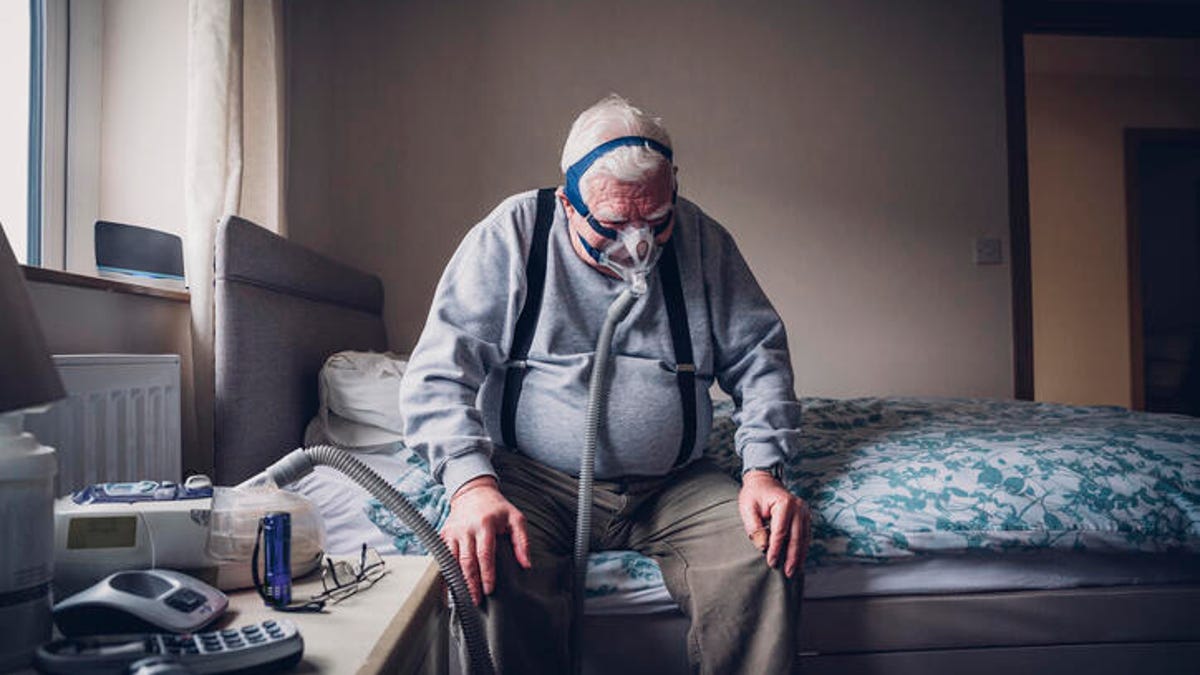Phillips Has Stopped CPAP Machine Sales. What This Means for Your Sleep Apnea
Over 5 million Phillips pressurized breathing machines have been recalled in the past two years. Now, Phillips can't sell them anymore.

After years of product recalls and efforts to replace machines, Philips Respironics will not sell products under its respiratory device division in the US per a tentative agreement with regulators. This includes all BiPAP, CPAP and ventilation machines.
This all started in 2021 when several Phillips respiratory devices were recalled under a Class 1 recall because of potential health risks associated with foam breakdown inside the devices.
The polyester-based polyurethane foam was found to break down over time after exposure to heat or humid conditions. Pieces of the foam and associated fumes could be breathed in or swallowed when wearing your machine, leading to health problems like skin irritation, headache and allergic reactions.
Read more: Top 8 Signs of Sleep Apnea and What to Do About It
Since the announcement, Phillips has recalled over 5 million pressurized breathing devices from the foam and a separate overheating hazard in the DreamStation 2.
The FDA has documented over 105,000 medical device reports related to the recall and 385 deaths. Phillips cannot start selling CPAP machines again until the corrective actions laid out by the FDA are met.
What this means for your sleep apnea
Approximately 22 million Americans have sleep apnea, the sleep disorder marked by frequent breathing interruptions while you sleep. If you have sleep apnea, you may have found yourself stuck in the middle of this recall, requiring a CPAP machine to sleep well and needing a replacement.
This problem isn't new; many have reported delayed replacements and poor communication from the original recall. It's estimated that only about half of people with devices registered for the recall. Because of this, the FDA ordered Phillips to broaden the communication efforts on the health risks of the machines, something the agency does not usually do.
As outlined in the tentative agreement, Phillips is offering customer support for affected devices through an established end-of-service date, which can be found on the Phillips website among the discontinued products. Repair kit and spare parts support will be provided to the end date, though new products will not be available for replacement or sale.
The FDA recommends you speak with your doctor to find an alternative machine or treatment plan to continue sleeping well. Do not stop using your CPAP machine without guidance from a healthcare provider. Do not try to take out the foam from your Phillips device.
Depending on the severity of your sleep apnea, you may need to continue using your device until a new one arrives. Sleep apnea isn't something you want to ignore, as the condition is associated with stroke, heart disease, hypertension and other medical conditions.
You should monitor your health while using your existing Phillips CPAP machine and make note of any symptoms that the FDA noted:
- Headache
- Inflammation to the mouth, eyes and nose
- Airway inflammation
- Asthma
- Dizziness
- Allergic reaction
- Nausea and vomiting
- Toxic and cancer-causing effects
Read more: What is Inspire for sleep apnea? What to know about the new treatment
What to look for in your next CPAP machine
If your Phillips CPAP machine was recalled, you'll need a replacement. Machines usually cost anywhere from $500 to $1,000, although most insurance plans and Medicare at least partially cover CPAP machines.
Sleep apnea is treated with several different devices, the CPAP machine being the most common. Although bilevel positive airway pressure devices, chin straps and oral appliances to keep your airway open can also be used. Your doctor will prescribe what type of device you should get.
Key factors to keep in mind for your next CPAP machine:
- Noise level: Each CPAP machine has a noise rating associated with it. If you sleep with a partner who is a light sleeper, you'll want to consider this. Generally, 30 dB or lower is what most people aim for.
- Humidity feature: Not all CPAP machines offer a humidifier, although many people like it because it keeps you from getting a dry mouth or a bloody nose.
- Data recording: Many modern CPAP machines can record data to help you learn important insights about your sleep cycles. Some models even have data for pressure changes and sleep apnea events.
Other CPAP machines to use
Your insurance provider will play a large part in how you get your next CPAP machine. While some choose your device for you, others will set you up on a rent-to-own structure or reimburse you when you buy it outright.
The top brands of CPAP machines are ResMed, 3B Medical and Fisher & Paykel. Here are some popular CPAP machines to consider:
- ResMed AirSense: This HIPAA-compliant and FDA-approved CPAP machine has a humidifier and auto-ramp features. There are also voice-guided tutorials to help new users.
- React Health Luna G3: This CPAP machine has a screen and humidification feature.

